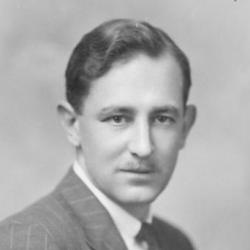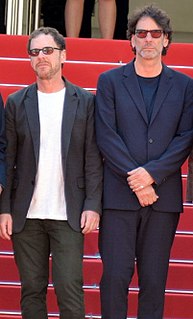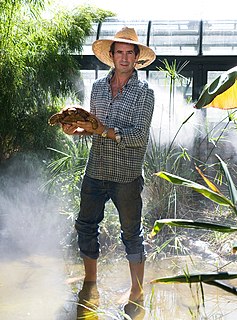A Quote by Yann Martel
[The taxidermist is] a historian, dealing with an animal's past; the zookeeper is a politician, dealing with an animal's present; and everyone else is a citizen who must decide on that animal's future (...) The indifference of the many, combined with the active hatred of the few, has sealed the fate of animals.
Related Quotes
For me the two biggest issues are climate change and animal welfare/animal agriculture. And oddly enough animal agriculture is such a contributor to climate change. According to the United Nations, 25% of climate change comes from animal agriculture, so every car, bus, boat, truck, airplane combined has less CO2 and methane emissions than animal agriculture.
He said that man’s heart was the only bad heart in the animal kingdom; that man was the only animal capable of feeling malice, envy, vindictiveness, revengefulness, hatred, selfishness, the only animal that loves drunkenness, almost the only animal that could endure personal uncleanliness and a filthy habitation, the sole animal in whom was fully developed the base instinct called patriotism, the sole animal that robs, persecutes, oppresses and kills members of his own tribe, the sole animal that steals and enslaves the members of any tribe.
You don't cast the animal, per se. You have an animal trainer who looks for several of them. That is a different experience than dealing with actors. That is just difficult. It is what you expect from an animal on the set. You just run a lot of film and prompt it to do the right thing, but sit through it doing all the wrong things first. It's just unbelievably boring, frustrating and painstaking to shoot.
I believe that the best way to create good living conditions for any animal, whether it's a captive animal living in a zoo, a farm animal or a pet, is to base animal welfare programs on the core emotion systems in the brain. My theory is that the environment animals live in should activate their positive emotions as much as possible, and not activate their negative emotions any more than necessary. If we get the animal's emotions rights, we will have fewer problem behaviors... All animals and people have the same core emotion systems in the brain.
Not only are the philosophies of animal rights and animal welfare separated by irreconcilable differences... the enactment of animal welfare measures actually impedes the achievement of animal rights... Welfare reforms, by their very nature, can only serve to retard the pace at which animal rights goals are achieved.
I studied a lot of animal behavior and one of the things I find really interesting is the whole idea that animals are sensory based thinkers and I wrote about this in my book, Animals in Translation. That an animal's memory is not in words, they've got to be in pictures - it's very detailed so let's say the animal gets afraid of something - they'll get afraid of something that they're looking at or hearing, the moment the bad thing happens.
Water is an individual, an animal, and is alive, remove the hydrogen and it is an animal and is alive; the remaining oxygen is also an individual, an animal, and is alive. Recapitulation: the two individuals combined, constitute a third individual-and yet each continues to be an individual....here was mute Nature explaining the sublime mystery of the Trinity so luminously that even the commonest understanding could comprehend it, whereas many a trained master of words had labored to do it with speech and failed.

































